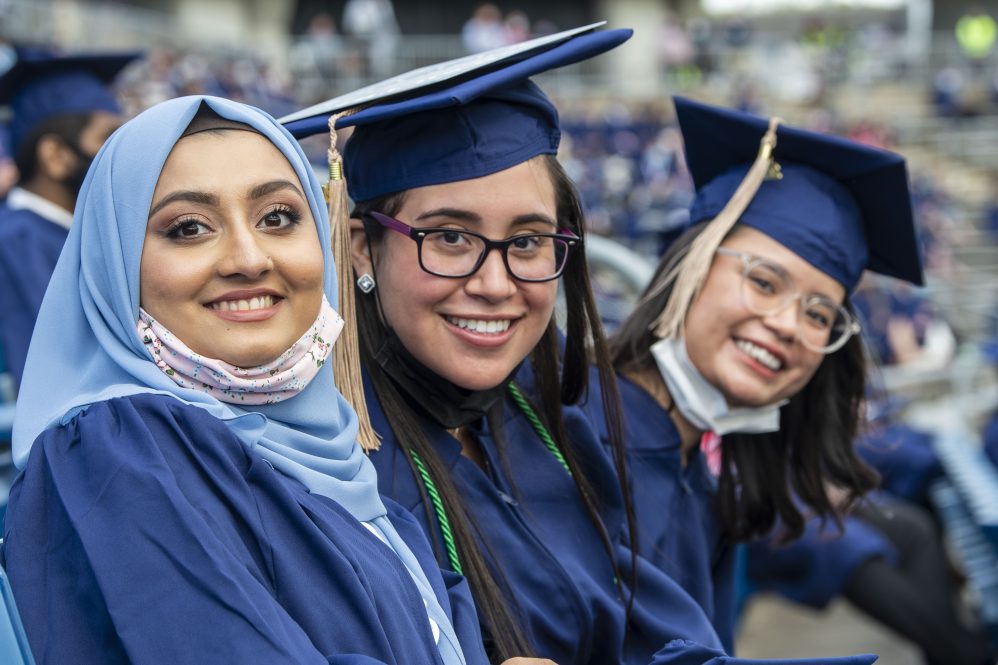Commencement at UConn has many traditions, ranging from posing for pictures at the statue of Jonathan in front of Gampel Pavilion or indulging in the senior scoop ice cream flavor at the Dairy Bar.

Now, the wearing of a green cord with cap and gown by first-generation graduates can be added to that list. The idea was developed last year by the First Generation Student Society and Leo Lachut ’89 (CLAS), director of the Academic Achievement Center (AAC).
“We wanted to start a university initiative where all first gen students had something common to wear at graduation,” says Geraldine Uribe ’23 (CLAS), a political science and urban community studies major from Stamford.
Uribe, a daughter of immigrants from Peru and a first-generation student herself, serves as the vice president of the First Generation Student Society. First-generation college students are those whose parents or guardians did not attend college, and often they are the first in their entire family to have an educational experience beyond high school.
During the 2020-21 academic year, the First Generation Student Society met virtually to maintain their community, and the executive board of that group made the establishment of the green cords at commencement one of their goals.
“We chose green because the color really pops out against the blue of the UConn cap and gown, and also because there is a lot of green at the Academic Achievement Center,” says Uribe, who attended high school at the Academy of Information Technology and Engineering in Stamford.
The green cords made their debut at last year’s commencement ceremonies, which honored both the Class of 2021 and ’20, who had to wait a year for an in-person celebration because of COVID-19.
“As a first gen UConn grad myself, it was a proud moment to look across the rows of graduates and see so many green cords knowing that I was able to be part of such a rewarding initiative,” says Lachut.
First-generation students who are graduating this May should receive an email on how to obtain their green cord. Students can also email leo.lachut@uconn.edu for information.
Uribe knows from experience that first-generation students face unique challenges in their college careers.
“First-generation students bring a lot to the UConn community and are very strong people,” says Uribe. “We come into a university not knowing the basic things that other students might know from their parents or siblings who went to college. We don’t know anything about what office hours are, what a TA is, or even what a credit is. It’s all new to us, and we have a lot of obstacles to navigate.”
Uribe says she had difficulty adjusting to college life when she started, but credits the UConn Connects program with changing her entire experience for the better. UConn Connects is a volunteer mentoring program offered by the AAC. It is an academic intervention program, designed to provide students with the skills and support needed for academic success.
“I did a whole 180 on my whole life and now here I am,” says Uribe. “My mentor was also a first gen student, and so I was able to see her thrive and be successful, which motivated me to do the same.”
Uribe now serves as a master coach at the AAC, and was a mentor in UConn Connects. She works specifically with first gen students.
After she graduates, Uribe is contemplating a career in political campaign management, and gained experience last summer and fall by working on the successful run of Stamford mayor Caroline Simmons.
“We are strong because we get through those obstacles, and it makes us grow as students,” she says of her fellow first-generation students. “We have a strong motivation to graduate, not only for ourselves, but also for our families. Every fist gen student has a different story, but we all had to break that trend in our families of not going to college.”



